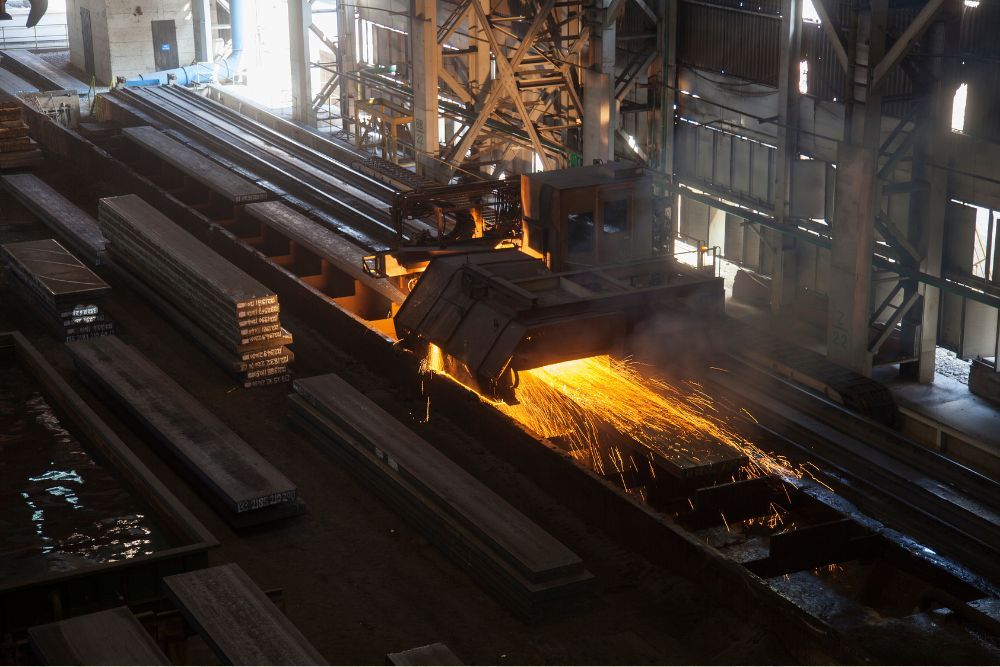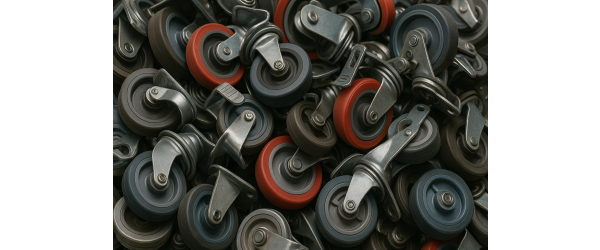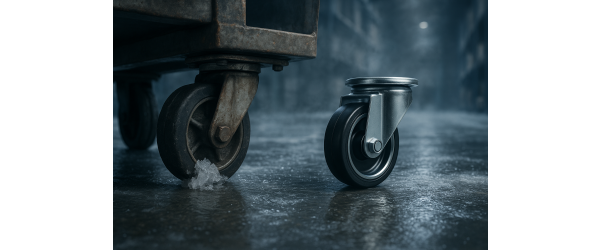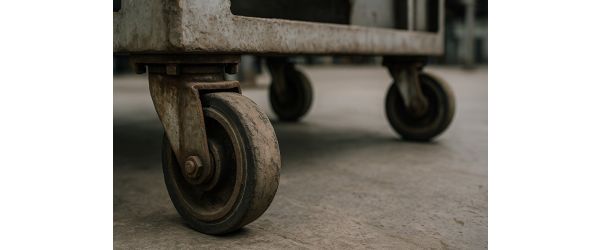When dealing with extreme heat, standard castors can often fall short in performance, becoming deformed or worn under high temperatures. High heat castors are specially designed to withstand intense environments, maintaining their integrity and smooth operation even in extreme conditions. These high temp wheels are essential for various industries where equipment is exposed to high heat, ensuring safety, durability, and mobility. In this blog post, we’ll explore the top 10 industries that benefit from using high-temperature castor wheels.
1. Baking and Food Production
The baking and food production industry often involves high-temperature ovens, fryers, and other equipment. High heat castors are essential in this environment as they allow for the easy movement of trolleys, racks, and equipment exposed to extreme heat during cooking and baking processes.
- Benefits: These castors can withstand the high temperatures of ovens and cooking appliances without melting or deforming. They also provide smooth mobility for food trays and racks, enhancing workflow efficiency.
2. Industrial Ovens
In industries that rely on large industrial ovens for processes such as curing, drying, or heat-treating materials, high-temp wheels are a necessity. Equipment used in and around these ovens needs to move freely, and high heat castors ensure they can withstand extreme temperatures without failure.
- Benefits: High-temperature castors offer heat resistance, maintaining their structural integrity even when exposed to prolonged heat inside or near industrial ovens.
3. Foundries and Metalworks
Foundries and metalworking facilities operate at extremely high temperatures, particularly during the smelting, casting, and forging of metals. In such environments, machinery, moulds, and materials need to be transported safely, making high-temperature castors an essential part of the equipment.
- Benefits: High-temp wheels ensure mobility in extreme heat, preventing damage to equipment and improving the safety and efficiency of operations.
4. Automotive Industry
The automotive industry often involves processes like welding, heat-treating, and the use of curing ovens for paints and coatings. During these high-temperature processes, equipment fitted with high heat castors can easily be moved without concern for heat-related damage.
- Benefits: High-temp wheels allow for the safe movement of vehicles and parts in high-heat areas, ensuring that castors do not deform or fail during production.
5. Powder Coating
Powder coating involves curing surfaces at high temperatures to create durable finishes. The trolleys and racks used to transport items to and from curing ovens need to be fitted with high-temperature castor wheels to ensure smooth operation in these environments.
- Benefits: These castors withstand the heat generated during curing, allowing for the safe movement of coated items without damaging the castor wheels.
6. Kiln Operations
In industries such as ceramics or glass production, kilns are essential for firing materials. Equipment used near kilns needs to be fitted with high-temperature castors that can withstand the extreme heat.
- Benefits: Kiln trolleys equipped with high-temp wheels can be easily moved in and out of high-heat environments without the risk of castor failure.
7. Pharmaceutical and Chemical Production
Pharmaceutical and chemical production often involves high-heat processes, such as sterilisation and the use of autoclaves. High heat castors are necessary for the safe transportation of sensitive materials and equipment exposed to high temperatures.
- Benefits: These castors resist heat, ensuring smooth and safe movement of equipment used in high-temperature sterilisation processes.
8. Aerospace and Defence Manufacturing
Aerospace and defence manufacturing often involve heat-intensive processes such as metal forging, heat-treating, and coating. In these industries, the use of high-temperature castor wheels ensures that equipment and materials can be transported safely within high-heat environments.
- Benefits: High heat castors ensure that crucial equipment remains mobile and operational, even when exposed to extreme heat during manufacturing processes.
9. Glass Manufacturing
In glass manufacturing, where high temperatures are used to mould and form glass, high-temp wheels are vital. Trolleys and equipment used to transport molten glass or finished products need to be fitted with castors that can withstand the extreme heat near furnaces.
- Benefits: High heat castors allow for safe and efficient movement of glass products, reducing the risk of castor failure due to high temperatures.
10. Rubber and Plastics Industry
In the production of rubber and plastic products, high-temperature processes such as vulcanisation and curing are used. High-temperature castor wheels are necessary for the equipment and moulds that operate within these high-heat areas.
- Benefits: High-temp castors resist the damaging effects of heat, allowing for the smooth movement of products and equipment without worrying about castor degradation.
Conclusion
In industries where extreme temperatures are a part of daily operations, high heat castors and high-temp wheels are essential for ensuring the smooth and safe movement of equipment and materials. Whether in baking, metalworking, or pharmaceutical production, these castors are built to withstand the challenges of high-heat environments, enhancing efficiency and reducing the risk of equipment failure.
For a wide range of durable, heat-resistant castor wheels designed to meet the needs of these demanding industries, visit Castors-Online.co.uk
and explore our selection of high-temperature castor wheels.










